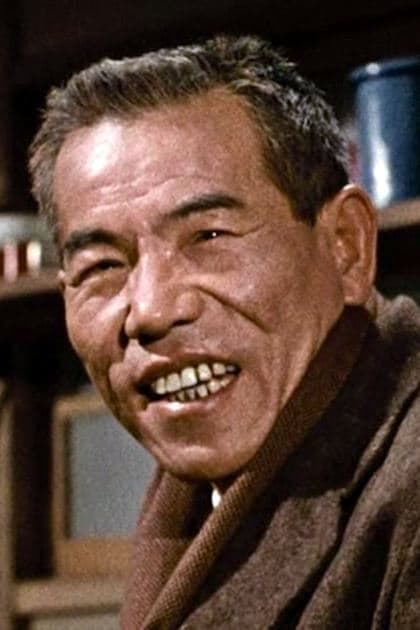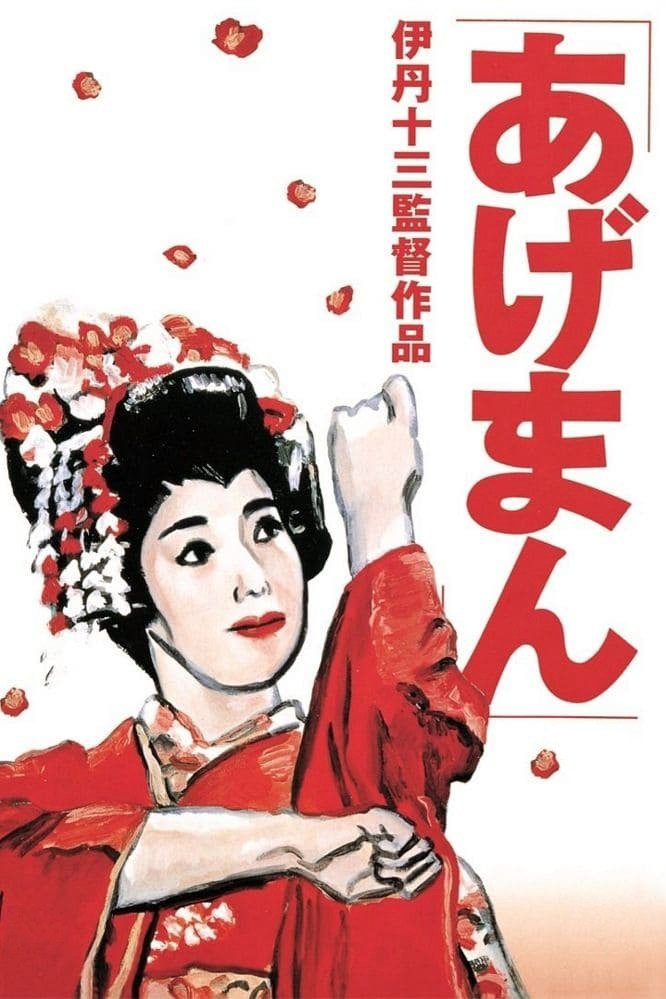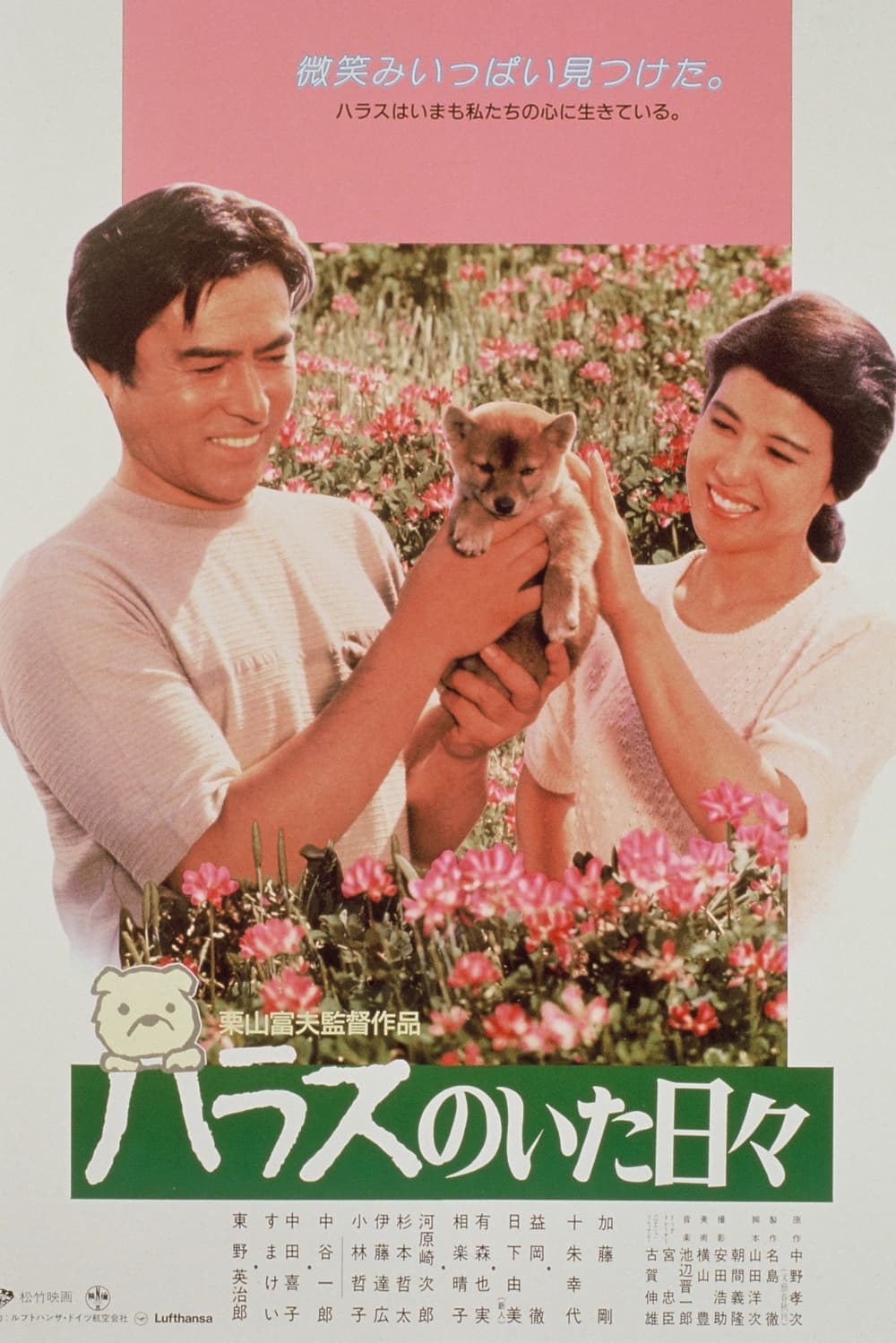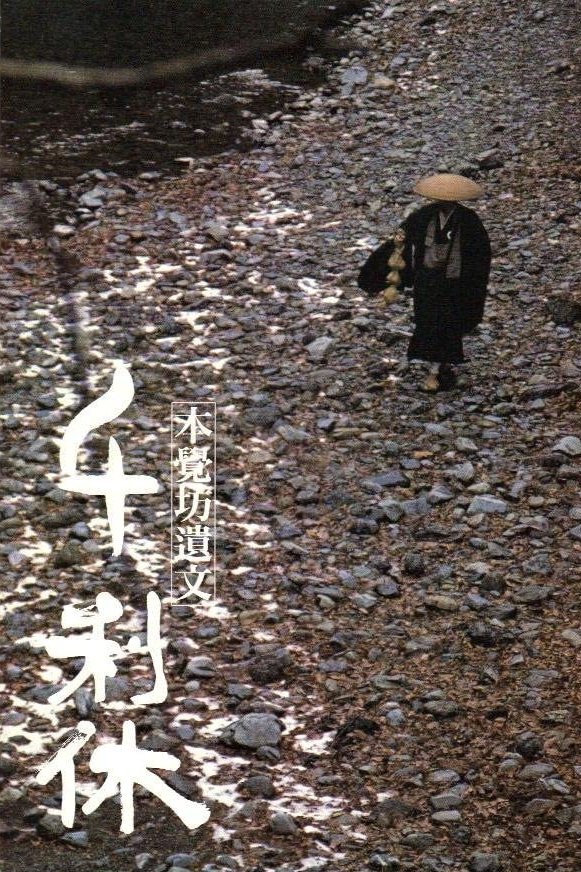

The film stars two of Itami's regular actors, Nobuko Miyamoto as a geisha who brings luck to the men with whom she sleeps, and Masahiko Tsugawa as her unfaithful, sometimes partner. As well as showing her relationships with the man she loves and the men who employ her, it satirizes corruption and the influence of money in Japanese politics.

The movie depicts the interaction between a childless middle-aged couple and a small dog.

Years after the death of legendary tea master Rikyu, his disciple Honkakubo attempts to resolve the mystery of the master's death.

In a small town, high school students in their final year try to balance their studies while also playing together in a rock band.
Eijirō Tōno (東野英治郎 Tōno Eijirō, 17 September 1907 – 8 September 1994) was a Japanese actor who, in a career lasting more than 50 years, appeared in over 400 television shows, nearly 250 films and numerous stage productions. He is best known in the West for his roles in films by Akira Kurosawa, such as Seven Samurai (1954) and Yojimbo (1961), and films by Yasujirō Ozu, such as Tokyo Story (1953) and An Autumn Afternoon (1962). He also appeared in Kill! by Kihachi Okamoto and Tora! Tora! Tora!, a depiction of the Japanese attack on Pearl Harbor. His final film was Juzo Itami's A-ge-man (Tales of a Golden Geisha) in 1990. Tōno also starred as the title character in the long-running television jidaigeki series Mito Kōmon from 1969 to 1983. In the early years of his career he acted under the name of Katsuji Honjo (本庄克二).
By browsing this website, you accept our cookies policy.